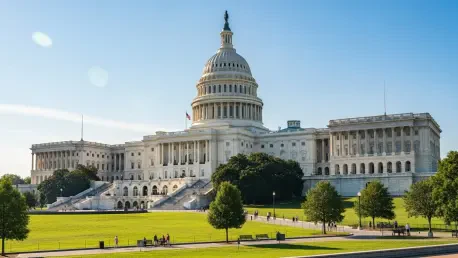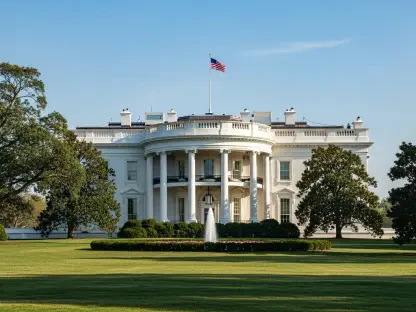As the United States grapples with yet another government shutdown, federal employees and contractors are left bearing the brunt of Washington’s gridlock. To shed light on this pressing issue, I sat down with Donald Gainsborough, a political savant and leader in policy and legislation at the helm of Government Curated. With decades of experience navigating the intricacies of government processes, Donald offers a deep understanding of how shutdowns impact everyday Americans and what legislative solutions are on the table. In our conversation, we explored the revival of a critical bill aimed at easing financial burdens during shutdowns, the urgency of protecting federal workers, and the political challenges of getting such measures passed in a divided Congress.
Can you walk us through the motivations behind reviving legislation like the Shutdown Guidance for Financial Institutions Act during the current government shutdown?
Absolutely, Ethan. The core inspiration for bringing back a bill like this comes from seeing the real human cost of government shutdowns. Federal employees and contractors, who often live paycheck to paycheck, suddenly find themselves without income through no fault of their own. I’ve heard heartbreaking stories of families struggling to pay rent or buy groceries during past shutdowns. This legislation builds on the work of previous lawmakers who recognized that Washington’s dysfunction shouldn’t punish hardworking Americans. It’s about ensuring there’s a safety net in place when political impasses leave people stranded.
How does a bill like H.R. 5689 specifically aim to support federal workers and contractors facing financial hardship during a shutdown?
The bill is designed to act fast and provide immediate relief. It mandates that regulators issue guidance to financial institutions within 24 hours of a shutdown’s start, signaling that affected individuals and businesses might struggle to meet financial obligations. This guidance encourages banks and lenders to modify loan terms, offer new credit lines, and crucially, prevent negative financial information from being reported to credit bureaus. The idea is to shield people from long-term damage to their credit scores while they’re caught in a situation beyond their control.
Why do you believe it’s so essential to protect federal employees from the economic ripple effects of a government shutdown?
These workers are the backbone of our government services, and they’re often unfairly caught in the crossfire of political battles. I recall a story from a past shutdown where a single parent in a federal job had to choose between paying for childcare and buying food for the week. That kind of hardship isn’t just a personal tragedy—it weakens trust in government as an employer. Shutdowns aren’t just political theater; they have real consequences for real people, and we have a moral obligation to mitigate that damage.
Given that similar legislation passed the House in 2019 but stalled in the Senate, what factors do you think could make a difference in getting it through this time?
The political landscape has shifted since 2019, and there’s a growing awareness of how shutdowns impact communities, even among lawmakers who might have been skeptical before. Building bipartisan support is key, and that means engaging with senators who represent states with large federal workforces. It’s also about framing this as a nonpartisan issue—protecting workers isn’t about picking a side; it’s about doing what’s right. Addressing concerns head-on, like ensuring financial institutions aren’t overburdened, will be critical to overcoming past roadblocks.
Can you elaborate on the additional measure allowing federal workers to borrow from their Thrift Savings Plan without penalties during extended shutdowns?
This is a practical lifeline for many. The Thrift Savings Plan is essentially a retirement savings account for federal employees, and during a prolonged shutdown, accessing those funds without penalties can mean the difference between paying bills or falling into debt. It’s not a perfect solution—borrowing from retirement savings should always be a last resort—but it gives workers an option when they’re desperate. The mechanism would allow them to take out a loan against their savings, with terms designed to minimize long-term financial harm.
With the current shutdown already disrupting lives, how urgent do you feel it is to push these protective measures through Congress?
The urgency couldn’t be higher. Every day a shutdown drags on, more families are pushed to the brink. I’ve heard from constituents who are already rationing essentials or dipping into savings just to get by. Awareness among lawmakers varies—some are deeply attuned to these struggles, while others seem disconnected. That’s why public pressure and advocacy are so important right now to keep this issue front and center.
What is your forecast for the future of legislation aimed at protecting federal workers during government shutdowns?
I’m cautiously optimistic. The recurring nature of shutdowns means we’re likely to see more bipartisan support for protective measures over time, as the human toll becomes harder to ignore. However, the political divide in Congress remains a hurdle, and without a broader agreement on budget processes, these bills might continue to face resistance. My hope is that we’ll see a cultural shift in Washington toward prioritizing stability for federal workers, but it will take sustained effort from both lawmakers and the public to make that a reality.









